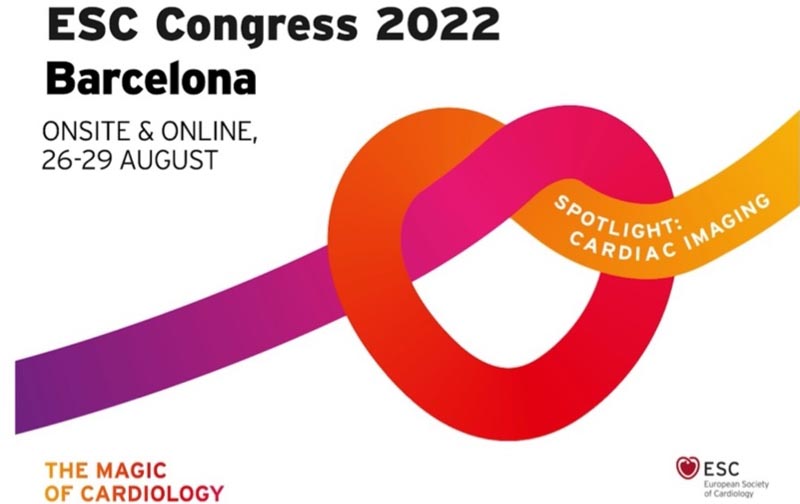
Levels of alcohol consumption currently considered safe by some countries are linked to the development of heart failure, according to research presented at Heart Failure 2022 , a scientific congress of the European Society of Cardiology (ESC).
"This study adds to the body of evidence that a more cautious approach to alcohol consumption is needed," said study author Dr. Bethany Wong, of St. Vincent’s University Hospital, Dublin, Ireland. “To minimize the risk of alcohol causing heart damage, if you don’t drink, don’t start. If you drink, limit your weekly consumption to less than one bottle of wine or less than three and a half 500ml cans of 4.5% beer.
According to the World Health Organization, the European Union is the heaviest drinking region in the world.2 While it is well known that long-term heavy drinking can cause a type of heart failure called alcoholic cardiomyopathy,3 the evidence of Asian populations suggests that lower amounts may also be harmful. “Given that there are genetic and environmental differences between Asian and European populations, this study investigated whether there was a similar relationship between alcohol and cardiac changes in Europeans at risk of heart failure or with previous heart problems,” said Dr. Wong. . “The pillar of treatment for this group is the control of risk factors such as alcohol, so it is essential to know safe levels.”
This was a secondary analysis of the STOP-HF trial.6 The study included 744 adults aged 40 years and older at risk of developing heart failure due to risk factors (e.g., high blood pressure, diabetes, obesity) or with prior heart failure . (risk factors and heart abnormalities but no symptoms).
The average age was 66.5 years and 53% were women. The study excluded former drinkers and heart failure patients with symptoms (for example, shortness of breath, tiredness, reduced ability to exercise, swollen ankles). Cardiac function was measured with echocardiography at baseline and during follow-up.
The study used the Irish definition of a standard drink (i.e., one unit), which is 10 grams of alcohol.8 Participants were classified according to their weekly alcohol consumption: 1) none; 2) low (less than seven units; up to one 750 ml bottle of 12.5% wine or three and a half 500 ml cans of 4.5% beer); 3) moderate (7-14 units; up to two bottles of 12.5% wine or seven 500 ml cans of 4.5% beer); 4) high (more than 14 units; more than two bottles of wine 12.5% or seven 500 ml cans of beer 4.5%).
The researchers looked at the association between alcohol consumption and heart health over a median of 5.4 years.
Results were reported separately for risk and pre-heart failure groups. In the risk group, worsening cardiac health was defined as progression to previous heart failure or symptomatic heart failure. For the preheart failure group, worsening heart health was defined as deterioration of the contraction or relaxation functions of the heart or progression to symptomatic heart failure. The analyzes were adjusted for factors that can affect heart structure, such as age, sex, obesity, high blood pressure, diabetes, and vascular diseases.
A total of 201 (27%) patients reported no alcohol consumption, while 356 (48%) were low users and 187 (25%) were moderate or high users. Compared with the low consumption group, those with moderate or high consumption were younger, more likely to be male, and had a higher body mass index.
In the pre-heart failure group, compared with no alcohol consumption, moderate or high intake was associated with a 4.5 times greater risk of worsening heart health. The relationship was also observed when the moderate and high levels were analyzed separately. In the risk group, there was no association between moderate or heavy alcohol consumption with progression to pre-heart failure or symptomatic heart failure. No protective associations were found for low alcohol intake.
Dr Wong said: “Our study suggests that drinking more than 70g of alcohol per week is associated with worsening of previous heart failure or progression to symptomatic heart failure in Europeans. We did not see any benefit from low alcohol consumption . Our results indicate that countries should promote lower limits of safe alcohol intake in patients with pre-existing heart failure. In Ireland, for example, people at risk of heart failure or pre-heart failure are recommended to restrict weekly alcohol intake to 11 units for women and 17 units for men. This limit for men is more than double the amount we consider safe. “More research is needed in Caucasian populations to align results and reduce the conflicting messages that physicians, patients, and the public currently receive.”
















